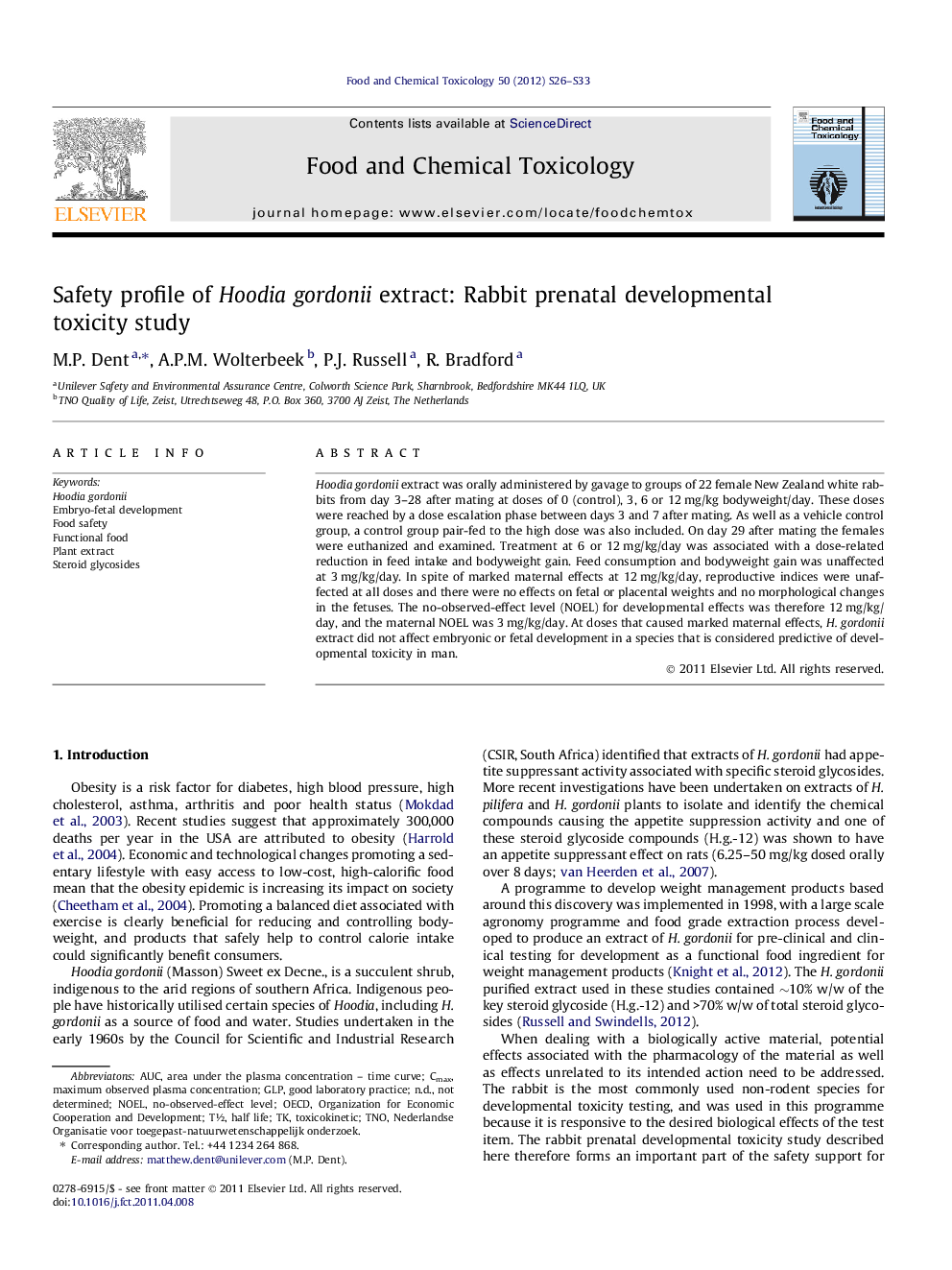| Article ID | Journal | Published Year | Pages | File Type |
|---|---|---|---|---|
| 2585369 | Food and Chemical Toxicology | 2012 | 8 Pages |
Hoodia gordonii extract was orally administered by gavage to groups of 22 female New Zealand white rabbits from day 3–28 after mating at doses of 0 (control), 3, 6 or 12 mg/kg bodyweight/day. These doses were reached by a dose escalation phase between days 3 and 7 after mating. As well as a vehicle control group, a control group pair-fed to the high dose was also included. On day 29 after mating the females were euthanized and examined. Treatment at 6 or 12 mg/kg/day was associated with a dose-related reduction in feed intake and bodyweight gain. Feed consumption and bodyweight gain was unaffected at 3 mg/kg/day. In spite of marked maternal effects at 12 mg/kg/day, reproductive indices were unaffected at all doses and there were no effects on fetal or placental weights and no morphological changes in the fetuses. The no-observed-effect level (NOEL) for developmental effects was therefore 12 mg/kg/day, and the maternal NOEL was 3 mg/kg/day. At doses that caused marked maternal effects, H. gordonii extract did not affect embryonic or fetal development in a species that is considered predictive of developmental toxicity in man.
